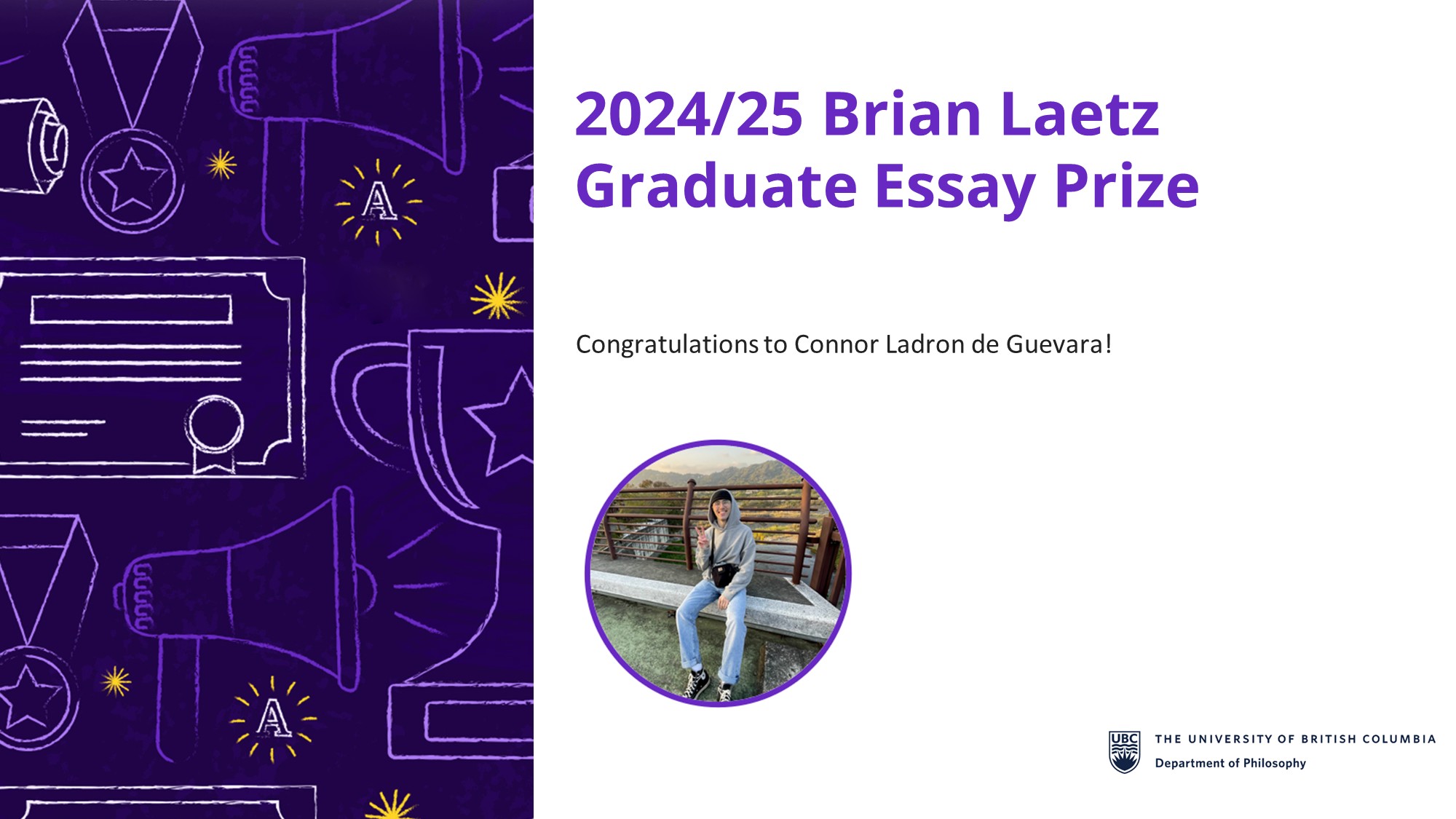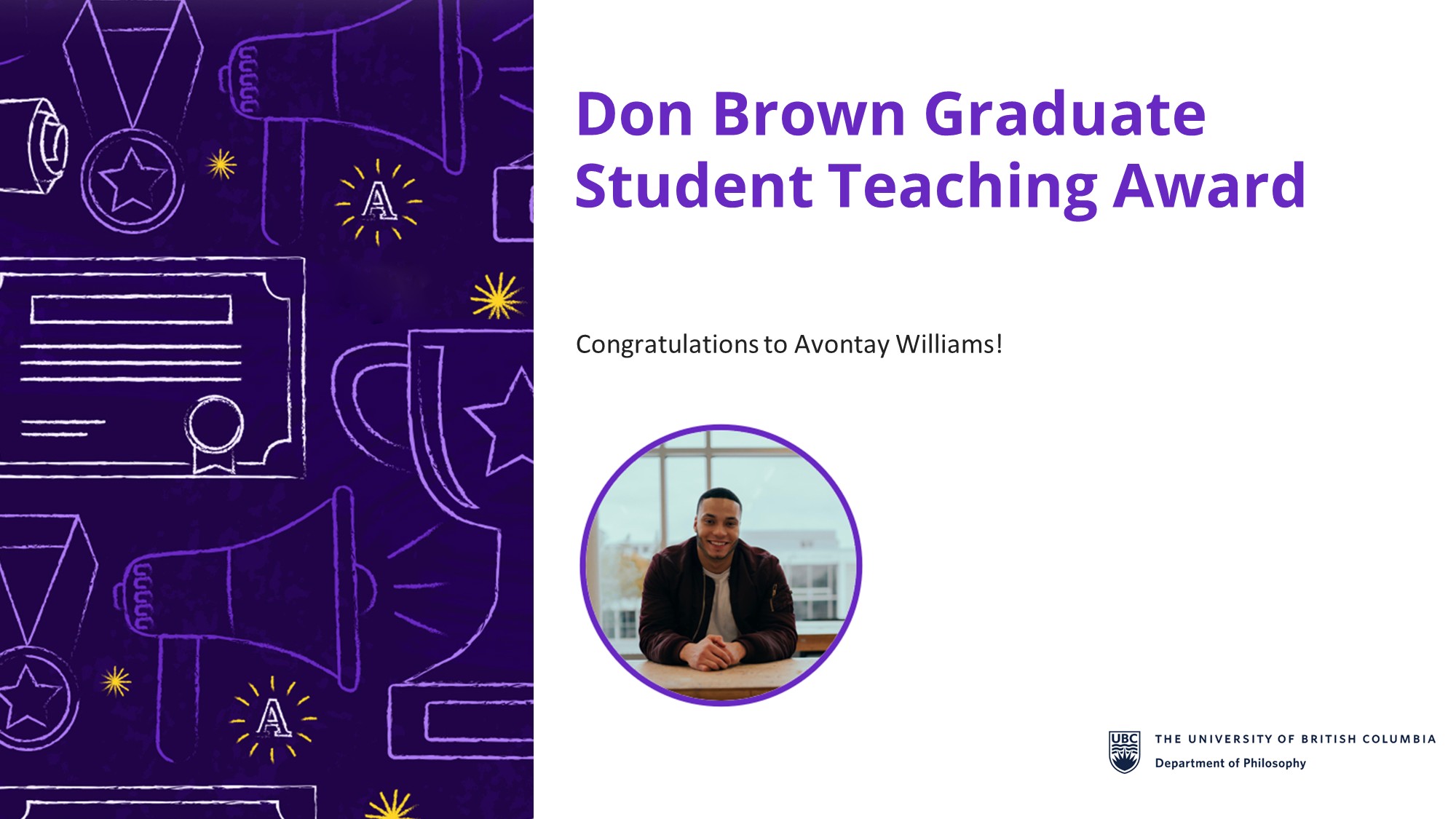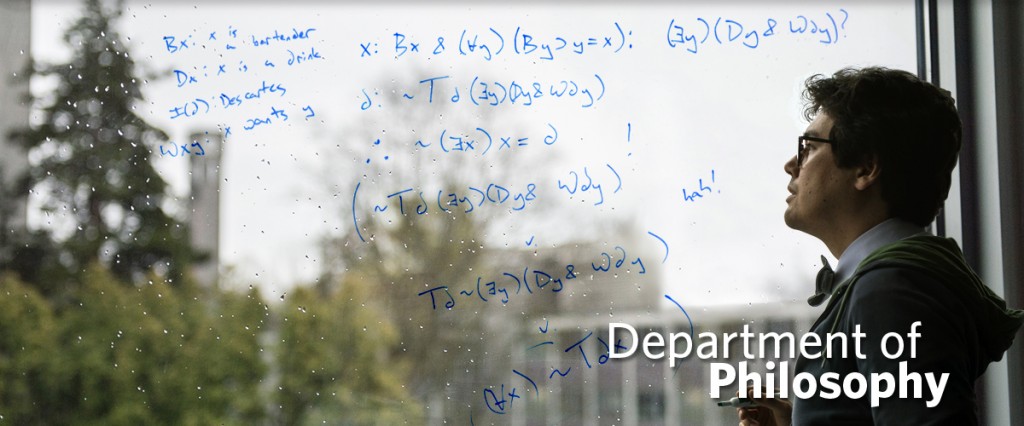UBC’s Student-Directed Seminar (SDS) program “provides upper year undergraduate students (in 3rd year or later) the opportunity to propose, coordinate, and lead their own 3-credit seminar class with a small group of peers on a topic not currently offered at UBC-Vancouver.”
Next term, UBC Philosophy students will be leading two seminars exploring different branches of the history of philosophy not currently covered by our curriculum (and there are still seats available in both!). Here are the details:
PHIL 487-001: Philosophy in The Islamic World
T/Th, 3:30 – 5:00 PM (Pacific)
Course Coordinator: Jackson Duckworth*
Faculty Sponsor: Sylvia Berryman
Questions? Get in touch with Tim, at: phil.undergrad@ubc.ca.
Philosophical inquiry in the Islamic world produced some of the most rigorous proofs for God’s existence, inspired some of the strongest arguments for and against the philosophical discipline, and generated numerous discourses on ethics, epistemology, metaphysics, language, and politics. Throughout the course of this discussion-based seminar, we will delve into some of the more prominent medieval and modern Islamic philosophers, including the likes of Ibn Sina (Latinized: Avicenna), al-Ghazali, and Ibn Rushd (Averroes). It is through the eyes of these and other scholars that we will explore the multifaceted relationship between Islam and philosophical reasoning, while establishing a basic understanding of the philosophical tradition within the Islamic world.
*Jackson is one of four UBC students featured in this recent editorial about student-directed seminars in the Faculty of Arts next term.
PHIL 489-001/HIST 390D-201: Bridging the Divide: The History of the Continental-Analytic Split
T/Th, 5:00 – 6:30 PM (Pacific)
Course Coordinators: Marcel Shelton, Vlada Asadulaeva
Faculty Sponsors: Alan Richardson, Robert Brain
Questions? Get in touch with Tim, at: phil.undergrad@ubc.ca
The 20th century philosophical imagination has been radically shaped by the ostensible dichotomy between continental and analytic traditions, which continues to inform institutional arrangements of philosophy departments to our day. This seminar will seek to broach the historical forces which led to the establishment and subsequent development of the divide.
We will first examine several different kinds of scientific philosophy, developed throughout the late 19th and early 20th centuries by such philosophers as Edmund Husserl, Martin Heidegger, Rudolf Carnap, Bertrand Russell, and others. Although all of them embarked upon the project of redefining the practice of philosophy, for the most part they did not converge in their visions of a European intellectual future. As we examine the neo-Kantian origins of the split, we will primarily focus our attention on the famous confrontation between Martin Heidegger and Ernst Cassirer in 1929 in Davos. From the subsequent attack on Heidegger’s phenomenology by Carnap in 1932 to the break with the Frankfurt School, we will see the crystallisation of logical empiricism in opposition to other philosophical traditions. The divide will become even more apparent as we consider the British and American reception of the Vienna Circle’s ideas, which resulted in one of the first ever observations—by Georges Bataille—of the seeming incommensurability, or “abyss,” between Continental and Anglo-American philosophical cultures. Oxford linguistic philosophy will also have its place in the development of the split: first, as espoused by Gilbert Ryle in his encounter with Maurice Merleau-Ponty at the Royaumont colloquium in 1958, and secondly, as developed by J.L. Austin, whose theory of speech acts influenced the Searle-Derrida exchange in the early 70s. The examination of attempts to “bridge the divide” by some of the so-called “post-analytic” philosophers, and especially by Richard Rorty, will conclude our seminar.
Importantly, our historical analysis will not be limited to philosophical arguments only; instead, it will situate the origins of the continental-analytic divide in the social, political, and cultural concerns of the 20th century. From the struggle against the rise of the political right in early 20th century Germany to the anti-fascist rhetoric in mid-century Britain to the question of liberal democracy in the Cold War America, social and political factors motivated the dynamics of the continental-analytic divide most profoundly.
The seminar is, in essence, an exercise in the contextual history of philosophy. Employing methodologies adopted from intellectual history and other historiographical traditions, we will attempt to make our own contributions to the historical study of the continental-analytic split.


